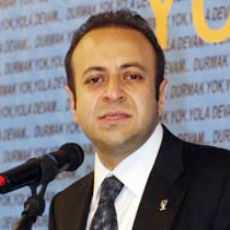
Radikal
June 11 2010
Turkey
The [Conference on Interaction and Confidence Building Measures in
Asia] that was held in Istanbul on 7 and 8 June – which was marked
mostly by debates over Israel’s attack on the Gaza flotilla – was
over but Prime Minister Tayyip Erdogan’s work was not yet done.
He received a phone call in the evening with a request from US
President Barack Obama to have a phone conversation with him. The
subject of the requested conversation was obvious. The US-sponsored
resolution on imposing additional sanctions on Iran because of its
nuclear programme would be put to a vote in the UN Security Council
the next day, that is on 9 June. Obama wanted to talk to influence
Turkey’s decision.
Erdogan consulted with Foreign Minister Ahmet Davutoglu and
other senior officials. His government had talked to the Iranian
administration with the approval and knowledge of the United States
and other UN Security Council members, and these talks had resulted in
a declaration that was released in Tehran on 17 May. As stipulated by
that declaration, one week later, on 24 May, the Iranian administration
had written to the Vienna Group – which was formed by the United
States, Russia, France, and the IAEA – to state that it would accept a
uranium swap via Turkey. Nothing had been heard from the Vienna Group,
but in the meantime the United States had mobilized to win approval
for UN sanctions, which, as stated in Obama’s 20 April letter, was seen
as a parallel rather than an alternative process to the Tehran talks.
Tense conversation
Obama’s phone call came soon after 01:30 on 9 June in Turkey, although
it was still 8 June in Washington. Obama and Erdogan had a lengthy
and difficult conversation for 45 minutes.
According to official sources who spoke to Radikal, Obama thanked
Turkey for its good will and mediation efforts and said that he
appreciates this work. However, he did not find Iran’s assurances
adequate. In any event, Iran was not saying anything binding with
regard to stopping its uranium enrichment work.
For these reasons, the US President was asking Turkey to vote “yes” on
imposing additional sanctions on Iran in the UN Security Council. The
official sources also told Radikal that they had the impression that
Obama was willing to accept happily a pledge from Erdogan to “abstain”
or not “not to vote,” although he did not say so explicitly.
However, Erdogan responded that Turkey would contradict itself if
it voted “yes” when the agreement it signed in Tehran was still on
the table.
According to the same sources, Erdogan also told Obama that voting in
favour of sanctions when the Tehran declaration had not yet produced
any results would be unbecoming of Turkey’s character. Erdogan said
that he could not do that and that a “yes” vote was impossible.
Yesterday, Erdogan said: “History would not forgive us.” This is the
backstage of those remarks.
Other side of coin
When we look at the other side of the coin, we see that this principled
stand is a first or a turning point in the known history of Turkish-US
relations.
According to diplomatic sources, there is a custom in Washington’s
relations with some of its allies. If the heads of state or government
– such as presidents or prime ministers – of a small group of countries
that include Turkey – other examples are Britain, Germany, Israel,
Japan, and South Korea – request anything from the US president,
then the US president accedes to their requests provided that they
do conflict with other strategic priorities; if necessary, he asks
questions later.
Obama’s positive response to Erdogan’s request for a joint campaign
against the PKK [Kurdistan Workers’ Party] is viewed within this
framework. Similarly, Obama did not remain indifferent to Erdogan’s
requests for support with respect to the [pending] Armenian genocide
resolution [before the US House of Representatives].
In view of this, Erdogan’s repudiation of Obama’s request over the
Iran sanctions is considered a first and a turning point in Turkish-US
relations.
On the other hand, the rejection of the 1 March 2003 authorization
bill – the first other instance that comes to mind – is not considered
to be in this category. That is because, according to US records,
the Turkish prime minister kept his word to send the bill to the
Assembly but the Assembly did not approve it.
The disappointment the current situation has caused in Washington has
also become evident another way. Reporters in Washington are given
at least some information about every conversation US presidents
have with foreign leaders. No information was given to reporters
about Obama’s conversation with Erdogan even though questions were
asked about it. The explanation given for this is that Obama did not
want the public to know that Turkey, an ally, turned down his request
about Iran sanctions at a time when he is having a hard time at home
over the oil leak in the Gulf of Mexico.
In view of these, it would be too optimistic to interpret US Secretary
of State Hillary Clinton’s remarks that “we have differences of
opinion but we understand them and expect results” as meaning that
nothing has changed as far as the United States is concerned.
[translated from Turkish]









